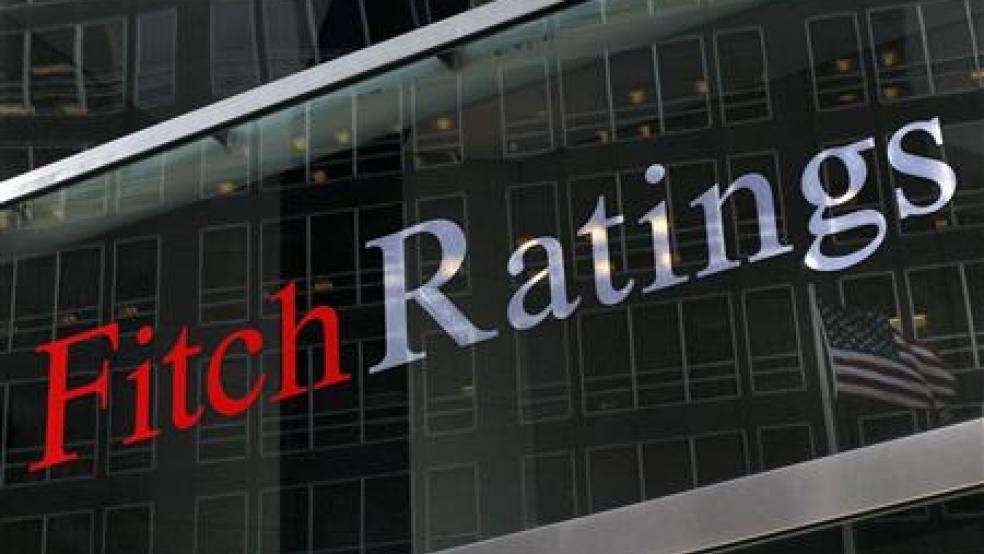Fitch Ratings downgraded the long-term credit rating of the United States from AAA to AA+ on Tuesday, citing the U.S. government’s debt burden and its “expected fiscal deterioration over the next three years.”
Fitch, one of three major agencies that evaluate the credit worthiness of companies and countries, also pointed to what it called an “erosion of governance” over the past two decades — a change, it says, “that has manifested in repeated debt limit standoffs and last-minute resolutions.”
The agency in May had placed the U.S. rating on “negative watch,” indicating that a downgrade might be coming after a bruising political battle over raising the debt limit. House Speaker Kevin McCarthy and a newly empowered Republican House majority had insisted on spending cuts and other demands in exchange for raising the federal borrowing limit. A bipartisan deal to suspend the limit until 2025 was signed into law in early June, just days before the Treasury was poised to potentially default on its obligations.
“The repeated debt-limit political standoffs and last-minute resolutions have eroded confidence in fiscal management,” Fitch said. “In addition, the government lacks a medium-term fiscal framework, unlike most peers, and has a complex budgeting process. These factors, along with several economic shocks as well as tax cuts and new spending initiatives, have contributed to successive debt increases over the last decade. Additionally, there has been only limited progress in tackling medium-term challenges related to rising social security and Medicare costs due to an aging population.”
Fitch projects that the “general government deficit” will rise from 3.7% of GDP in 2022 to 6.3% in 2023, 6.6% in 2024 and 6.9% in 2025. It also warned about the longer-term outlook. “Over the next decade, higher interest rates and the rising debt stock will increase the interest service burden, while an aging population and rising healthcare costs will raise spending on the elderly absent fiscal policy reforms,” it said. “Additionally, the 2017 tax cuts are set to expire in 2025, but there is likely to be political pressure to make these permanent as has been the case in the past, resulting in higher deficit projections.”
Biden administration ‘strongly disagrees’: Treasury Secretary Janet Yellen said in a statement that she “strongly disagrees” with the decision, which she called “arbitrary and based on outdated data.” She argued that the indicators Fitch uses in making its decision declined between 2018 and 2020 but have improved under the Biden administration. She added that the administration has passed bipartisan legislation to address the debt limit and invest in infrastructure and U.S. competitiveness.
The White House also said it “strongly disagrees” with the decision but also blamed Republicans for undermining the economy. “The ratings model used by Fitch declined under President Trump and then improved under President Biden, and it defies reality to downgrade the United States at a moment when President Biden has delivered the strongest recovery of any major economy in the world,” White House Press Secretary Karine Jean-Pierre said in a statement. “And it’s clear that extremism by Republican officials—from cheerleading default, to undermining governance and democracy, to seeking to extend deficit-busting tax giveaways for the wealthy and corporations—is a continued threat to our economy.”
Why it matters: Ultimately, the Fitch move may be more significant for its political and symbolic effects than its fiscal or financial ones, similar to the downgrade by Standard & Poor’s in 2011.
“My sense is that the Fitch downgrade of the US credit rating is an insignificant development and will not move financial markets or the economy,” RSM Chief Economist Joseph Brusuelas said on the social media site formerly known as Twitter. “As long as the Federal Reserve continues to treat US issues [SIC] paper as AAA rated credit so will financial market participants.”
As Yellen said in her statement: “Fitch’s decision does not change what Americans, investors, and people all around the world already know: that Treasury securities remain the world’s preeminent safe and liquid asset, and that the American economy is fundamentally strong.”





